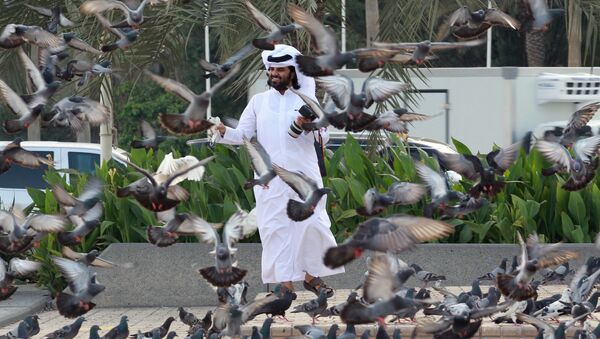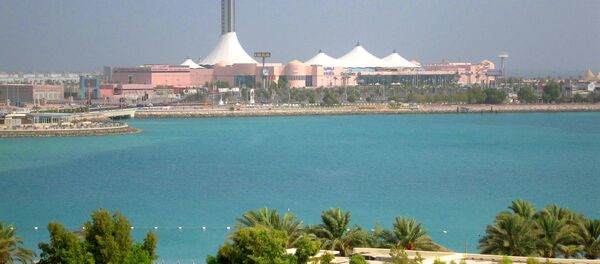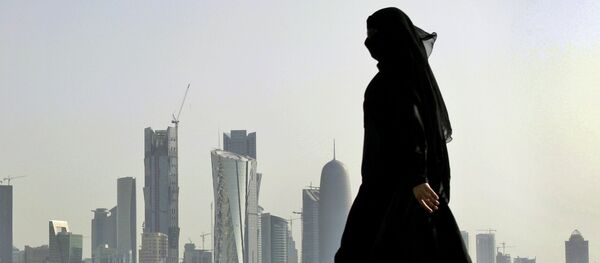Saudi Arabia, the United Arab Emirates, Egypt, and Bahrain have all severed their diplomatic and logistical ties with Qatar on Monday over the latter’s alleged financial support of terrorism – a claim that Doha fervently denies. The Qatari riyal has plunged to its 11-year lowest amidst the turmoil, and other global economies have become increasingly cautious over their further cooperation with Qatar.
The Philippines, for instance, stopped sending their workers to Qatar, thus dealing a significant blow to the latter’s buoyant real estate sector.
"We expect that economic growth will slow, not just through reduced regional trade, but as corporate profitability is damaged because regional demand is cut off, investment is hampered, and investment confidence wanes," S&P said when downgrading Qatar’s sovereign credit rating on Wednesday.
Saudi Arabia and its allies in the region were furious over the Qatari money going to the Iranian security officials as part of the ransom deal, whilst many international investors with interests in Qatar are more concerned over the Qatari money going to a group connected with al-Qaeda.
Qatar is exposed to international capital flows, with over 9 percent of the Qatari stock market held by international parties. The total capitalisation of the Qatari bourse was about $150 bln, and after the regional outrage over the hostage deal, the Qatari stock market crashed by 9.7 percent.
"We have no dollars at all and we cannot say when we will get new stock — there is a crisis going on," an anonymous employee at Doha Exchange said.
Next, the Qatari currency, the riyal, took a blow amidst the lack of international investment capital, the negative effects of which passed on to the Qatari currency trading. The US dollar hit its 11-year highest at 3.6526 riyals per $1 on Wednesday, and if not for the riyal’s peg to the dollar at 3.64, the damage to the currency market would have been much greater.
The reputational losses for Qatar are quite prominent, and will entail deterioration in the nation’s investment appeal, but a nation boasting a net influx of $2.7 bln per month in liquefied natural gas exports couldn’t be significantly bothered.
Moody’s Investors Service, another international credit rating agency, downgraded Qatar’s rating to Aa3, in line with S&P’s new AA- rating for Qatar. Fitch Ratings, however, still puts Qatar’s rating at AA, mostly because of Qatar’s accumulated wealth that will allow the nation to withstand the current turmoil for several months without significant harm to the economy.
However, the diplomatic scandal has impaired Qatar’s international economic interests to a greater degree. In the offshore trading, the Qatari riyal’s FX rate has become increasingly volatile, and banks currently give the riyal a 550-point premium against the dollar, its lowest since late 2015, when the currencies of the world’s oil economies were under pressure amidst the demise in global oil prices.
The biggest challenge to Qatar, however, is the transportation blockade imposed by its neighbours, the UAE and Saudi Arabia. Whilst the Qatari financial sector is relatively stable, backed by solid reserves, the Qatari real economy is exposed to international trade to a critical degree. The lion’s share of the Qatari inbound and outbound cargo goes through Dubai.
"We have confirmation that we will not be able to move Qatar cargo in and out of Jebel Ali," Maersk, the world’s biggest container-shipping operator said in a statement on Tuesday.
Jebel Ali is a large port in Dubai, though which most of the Qatari imports and exports go.
As of now, Qatari citizens are worried about the possible food shortages, whilst the existing stockpiles of consumer goods should suffice for about a week, according to some observations. The Qatari officials are more optimistic, suggesting the situation will return to business as usual within the next two days.
"Companies active or dependent on intra-Gulf trade routes to Qatar will face significant disruption to their operations and supply chains as a result of the de-facto economic blockade," Sorana Parvulescu of Control Risks, a London-based global risk and strategic consulting firm, said.
While panic spreads through Qatar’s import-export sector, food suppliers and distributors, airlines, banks and stock market, the nation’s position as one of the wealthiest in the world does not seem to matter – unless the transportation blockade is relieved, all the Qatari accumulated wealth could not be exchanged for physical goods.






